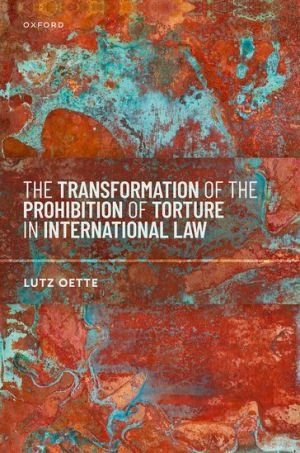
The prohibition of torture and other cruel, inhuman, degrading treatment or punishment has a special status. It is the foremost international human rights norm protecting persons from attacks on their dignity and integrity. Consequently, it has been at the forefront of a series of developments in international human rights law and international law more broadly. Having withstood sustained challenges to its absolute nature in the 'war on terror', it has broadened its scope of application, becoming more sophisticated and complex in the process. The prohibition of torture increasingly interacts with other fields of human rights law, such as non-discrimination law, international criminal law, international humanitarian law, and international migration law.
The Transformation of the Prohibition of Torture in International Law analyses the nature and significance of this transformation and looks into the scope of the prohibition's further evolution. Empirical scholarship, innovative human rights body practice, and challenges from activists, particularly from the Global South, have focused on the relational nature of torture and other ill-treatment, its embeddedness in wider structures of power, and the role of international law in legitimizing-if not facilitating-widespread suffering, from mass incarceration to poverty and climate change. This analysis reveals an inherent tension in the prohibition between a conventional, narrow focus on direct State violence and a wide lens encompassing myriad forms of suffering. To retain its validity and effectiveness in the twenty-first century, argues Lutz Oette, the prohibition on torture must navigate this tension and successfully address and transform abusive power asymmetries.